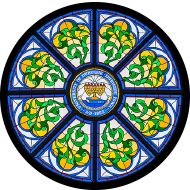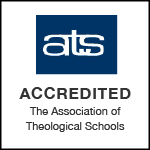UD Science Program Holds Continuing Education Workshop
Jun 8, 2006 | University of Dubuque Theological Seminary
From Wednesday, June 7 through Saturday, June 10, professors from the University of Dubuque's Department of Natural and Applied Science are leading a continuing education workshop in conjunction with the Audubon Center of the North Woods, Sandstone, MN.
The workshop- Sustainability of Our Resources- led by faculty members Dan Call, Dale Easley, Chulsung Kim, and Richard Smith, counts as recertification credits for 11 science teachers from Dubuque and the surrounding area. Participants include Don Brauhn, George Washington Middle School (Dubuque); Brent Chambers, Bellevue Community Schools (Bellevue); Nicole Chambers, Monticello High School (Monticello); Angela Christensen, Epworth Elementary School (Epworth); Colleen Foust, Bernard Elementary School (Bernard); Andrew Hudson, Monticello High School (Monticello); Diane May, Beckman High School (Dyersville); Dave Millis, Edgewood-Colesburg High School (Edgewood); Jim Rolling, Hempstead High School (Dubuque); Timothy Toops, Bellevue Community Schools (Bellevue); and Molly Wilcox, Monticello High School (Monticello).
One of the University science center's essential missions is to provide continuing education programs for science professionals. The Department of Natural and Applied Sciences programs concentrate on environmental research and education and are geared toward current science teachers, agency personnel, and undergraduate students majoring in environmental science or education. Their relationship with places such as the Audubon Center provide participants with a unique educational experience.
The Audubon Center is a residential environmental learning center (RELC), wildlife rehabilitation facility, and retreat center located in east-central Minnesota on the shores ofGrindstone Lake. Their diverse 535 acre sanctuary includes a variety of habitats. Participants in the workshop can take advantage of this unique setting in order to compare and contrast the biology and chemistry of the area's clear lake, natural bog, beaver pond, and wetlands. While in residence, participants are addressing the possibilities of sustainable forestry in an area rich with old-growth red and white pines, hardwood forests, and prairies.
"Environmental Science faculty at the University of Dubuque feel it is very important that the concept of natural resource sustainability is incorporated into the science curricula in our K-12 schools," commented Professor Call. "Workshops such as this encourage teachers to include topics in this general area in their instruction."





